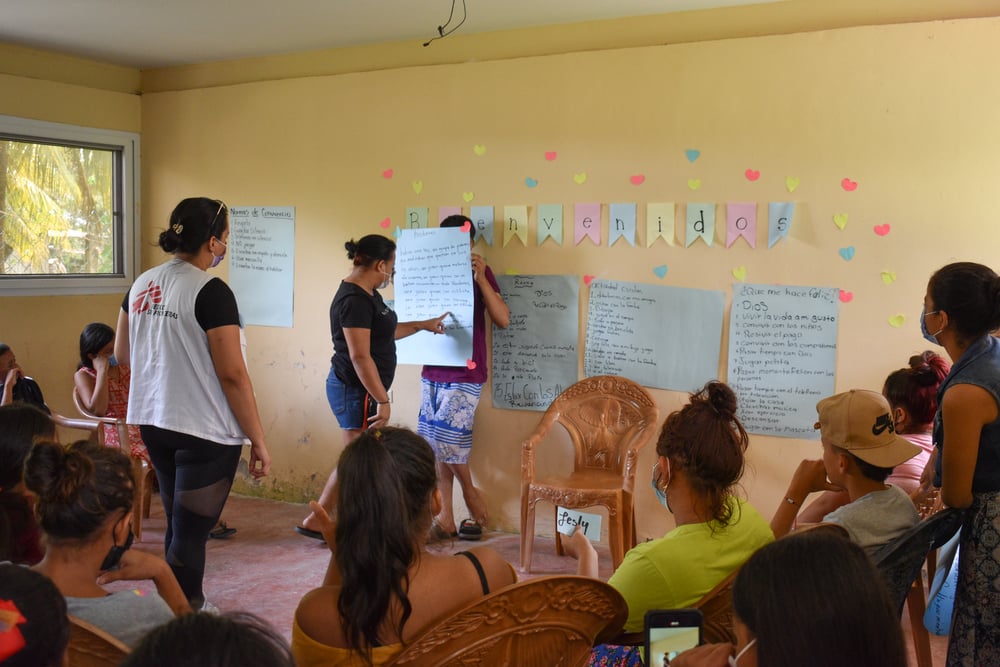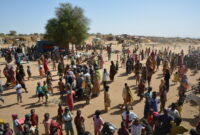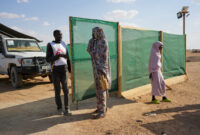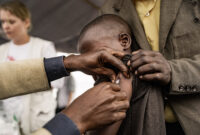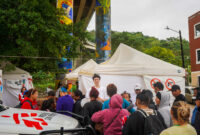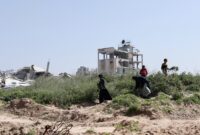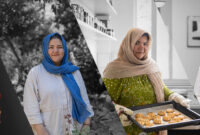Honduras: Filling the gap of sexual and reproductive health care and education in the community
The high rates of teenage pregnancies and unwanted pregnancies are two of the consequences of the lack of specialized services in this area of the country. Since 2022, Doctors Without Borders/Médecins Sans Frontières (MSF) has been working with a community approach to close this gap.
For decades, people across Honduras have faced many challenges accessing sexual and reproductive health services. Not only is there a limited supply of several contraception methods in the country, but there is a gap in education on sexual and reproductive health for adolescents. This contributes to the high rate of pregnancy in people under 18 years of age. In March 2022, the rate of teenage pregnancies in Honduras was 23 per cent. Adolescent mothers face higher risks of several complications from pregnancy, which is the leading cause of death for girls aged 15–19 globally. Adolescents in Honduras also face high rates of sexually transmitted infections (STIs), among other physical and mental health issues related to sexual and reproductive health.
Two decades ago, the Honduran Ministry of Health (known by its Spanish acronym SESAL) began working on a National Policy on Sexual and Reproductive Health that mandates the respect, protection, and fulfillment sexual and reproductive health needs of Hondurans. Despite this, there are still widespread gaps in sexual and reproductive health services, including a lack of pre and post-natal care, poor access to contraception, and high rates of sexual violence against women.
“Given the magnitude of these needs, it is urgent that the country’s authorities and other organizations increase their efforts and expand the supply of services on sexual and reproductive health issues in Honduras. It is also important that health centers have access to medicines and quality training for health personnel, and the urgent approval of a Protocol for Comprehensive Care victims and survivors of sexual violence”, explains Robert López, a psychologist and community educator for MSF in Choloma.
In Choloma, this is a super latent need, and the number of pregnant adolescents that we see in the communities, a municipality northern Honduras. “We go to places where there are no doctors or nurses and no education on sexual and reproductive health. In some communities, there is not a person who knows first aid or who knows what a certain medicine is for that can guide on family planning issues or provide a pre-natal or gynecological consultation”, said López.
In view of these urgent needs, this year, MSF launched medical and psychological care and community education on sexual and reproductive health issues in Choloma and nearby San Pedro Sula. The multidisciplinary teams made up of doctors, nurses, psychologists, and community educators visit different vulnerable communities to offer pre and post-natal consultations, mental health care, contraception, community education, and health promotion. MSF’s teams target communities that have high rates of violence—particularly sexual violence—and where there is a high number of pregnant women and adolescents.
In addition, the health promotion team has launched a program at health centers, schools, and other educational centers, and through MSF’s mobile clinic to educate adolescents on sexual and reproductive health issues. Through this program, they provide psychoeducational talks or group therapy to adolescents to answer their questions about sexual and reproductive health issues and address mental health needs.
Women and girls face multiple vulnerabilities

“When I was 12 years old, my maternal grandfather abused me twice,” said María* during a visit to a health center in La Bueso, a village not far outside Choloma. “I decided to leave home at the age of 14. By the age of 17 I had two children. I am currently a 33 and I already have seven children.” Maria had stumbled across MSF’s mobile clinic at the health center while trying to get registration documents for her five-month-old daughter. Last year, María fell pregnant after being raped. “I didn’t go to the doctor after the rape. I was surprised to find out I was pregnant. I had to give birth at home, with the help of a neighbor who is a nurse, because where I live there is no access to a health center and I have no money to pay for transportation, much less go to a private clinic.”
María’s experience is echoed in the stories of many other women who have suffered sexual abuse or rape from an early age. In the last 10 years, MSF teams in Honduras have treated 3,500 people who experienced sexual and gender-based violence. Often, people do not know how important it is to seek medical care after rape.
While María was waiting for the registration papers, one of MSF’s educators from the community team approached her to tell her about the services MSF offered. Aware of her economic needs and how challenging it can be to support a family, María decided to start contraception. “In the past I had to go through a lot of things,” said María. “I had sex for money. Now I have many kids. Just the fact of being able to apply a family planning method for free gives me peace of mind.”
“Vulnerability is also reflected in the existing gap in terms of counseling or support on the use of family planning methods, both in adult women and in adolescents,” said López. “Some of them are not aware of these methods or the consequences of unprotected sex.” In the last 10 months, MSF’s team in Choloma has provided contraception to 690 people in 15 different communities.
During the conversation with the educator, María also recognized the emotional load that she brings from her childhood and how this is affecting her work and her relationship with her children. “I really need psychological help,” she said. “I don’t have money to pay for a psychologist. With my current job I earn 1,400 lempiras [about $75 CAD] and most of it goes to baby’s food. I am aware that I need this support because I have been dragging many things [with me] from the past.”
Inadequate education about sexual and reproductive health can lead to deterioration in the mental health of women, adolescents, and girls. The needs identified by MSF’s mobile clinic teams include urgent psychological support. Since beginning the program 10 months ago, MSF has carried out more than 739 mental health consultations. The main symptoms include depression, anxiety, grief, acute reaction to stress, chronic psychosis, epilepsy, bipolar disorder, post-traumatic stress, and behavioral problems in children.
The people MSF’s teams have interacted with are eager to learn more about sexual and reproductive health. In addition to talking about the importance of prevention, planning, and self-care, MSF’s community teams also prioritize de-stigmatizing sexual and reproductive health care and reduce prejudice against people who seek it.
*Name has been changed.
